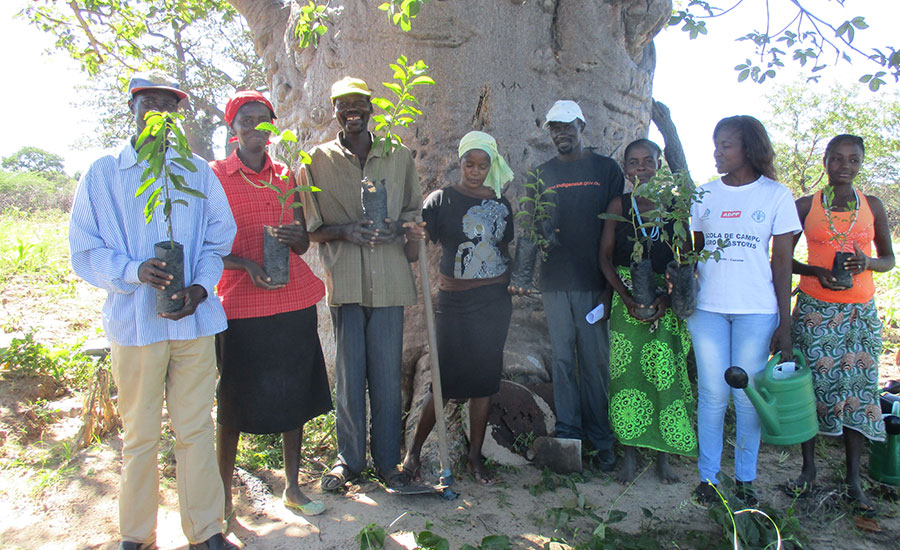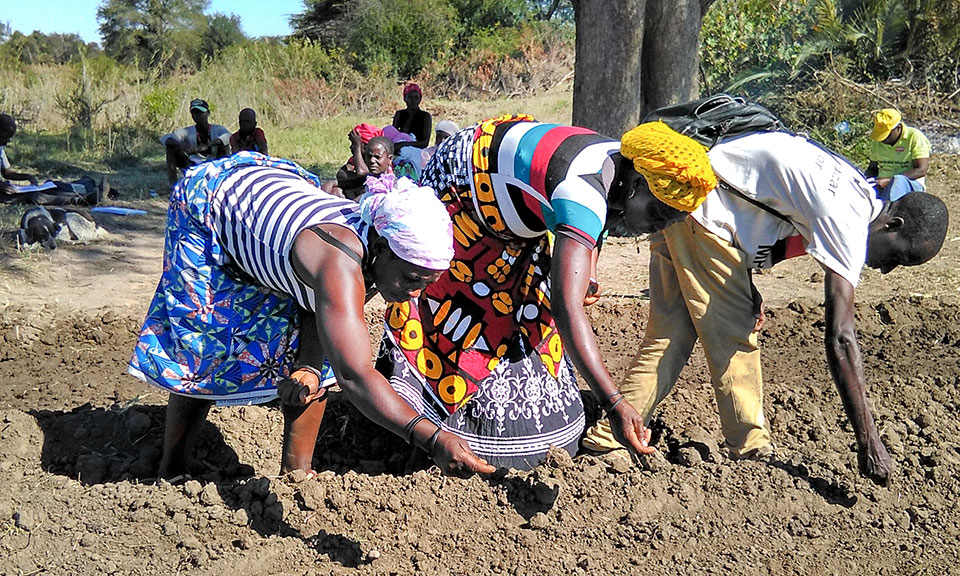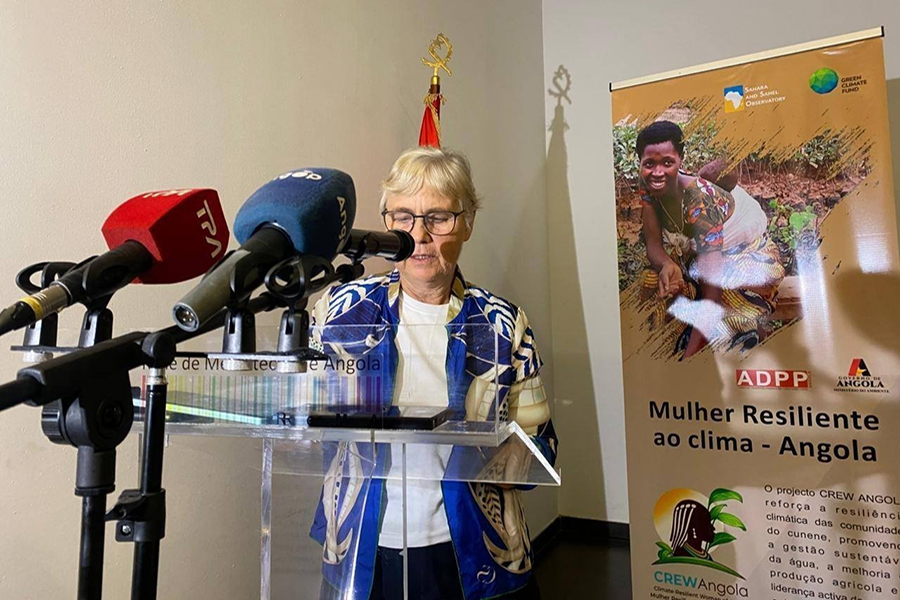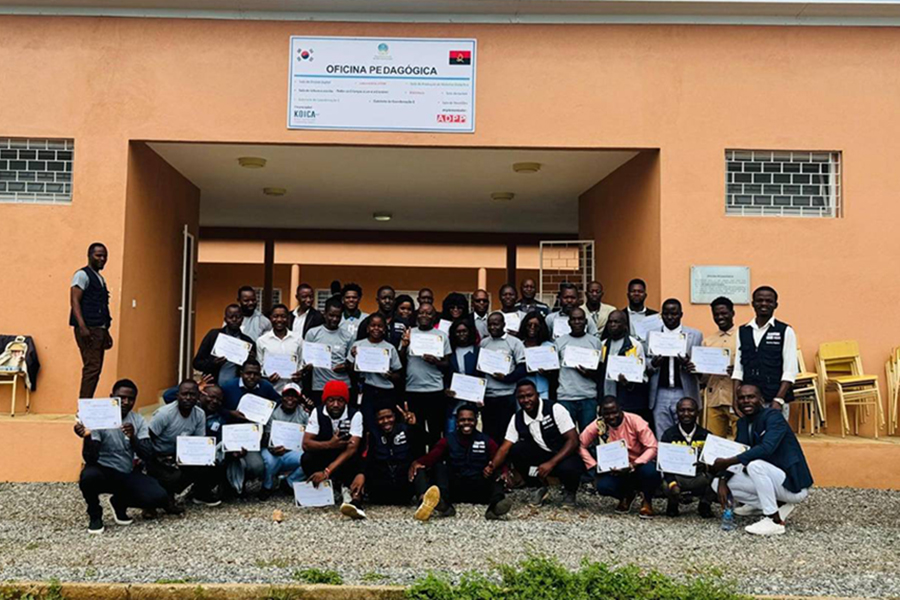AGRICULTURE and ENVIRONMENT are key to Angola’s future and ADPP works with mitigation, adaptation and at community level.
Climate change is a reality. Pollution is a reality. Ecosystem degradation is a reality. Renewable natural resources are being depleted and degraded, leaving communities who depend on them in an increasingly precarious situation.
With the very environment we depend upon under attack, and the least resilient in society suffering disproportionately, ADPP’s answer is to join forces with the vulnerable and fight back.
At project level, smallholders in ADPP Farmers’ Clubs learn environmentally friendly farming techniques, systems of irrigation that reduce water loss, the use of drought-resistant crop types and varieties. They plant trees, build firewood saving stoves, minimise pollution through improved waste disposal systems. ADPP engages charcoal producing communities to produce charcoal as efficiently as possible, to create environmental action groups and to plant trees.
ADPP Polytechnic students help develop efficient stoves at an affordable price and reduce charcoal loss by recycling residues into briquettes. Fishing communities have been learning the importance and means of reducing the depletion of fish stock, protect water sources, and increase overall sustainability.
Resilience to climate change is being achieved in the Cuvelai Basin through workshops and Community Action Groups, the demonstration of firewood saving stoves, seed banks, bee keeping and honey production, environmentally appropriate agricultural techniques, tree nurseries, horticulture and fish farming. Solar panels distributed to remote smallholdings and solar energy components of integrated development projects mean renewable energy sources are transforming lives and ensuring communication.
Community radio broadcasts are reaching farmers with technical help, information about environmental protection and weather warnings.
ADPP collaborates with a wide range of stakeholders in these projects, including the Ministries of Agriculture, Environment, Fisheries, Territorial Administration, provincial and municipal governments and traditional authorities, as well as multinational and national organisations.
AGRICULTURA

CRONOGRAMA
Through a public-private partnership, USAID is working...
Through a public-private partnership, USAID is working with ExxonMobil, Azule Energy and Grupo...
The ADWAC project focuses on increasing the resilience and...
The ADWAC project focuses on increasing the resilience and adaptation capacity of communities in...
Green spaces in cities are highly beneficial for our...
Green spaces in cities are highly beneficial for our physical and mental health. Trees and plants...
AS METAS GLOBAIS
ADPP's projects contribute to many of the United Nations’ Sustainable Development Goals:
Eradicate extreme poverty
Increase water-use efficiency and ensure freshwater supplies
Equal rights to ownership, basic services, technology and economic resources
Support local engagement in water and sanitation management
Build resilience to environmental, economic and social disasters
Increase global percentage of renewable energy
Double the agricultural productivity and incomes of small-scale food producers
Improve resource efficiency in consumption and production
Sustainable food production systems and resilient agricultural practices
Reduce the adverse effects of natural disasters
NOTÍCIAS E HISTÓRIAS
- All
- Agricultura
- Ambiente
- Default
- Title
- Date
- Random







